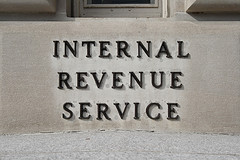You Might Have To Pay Taxes On That Canceled Credit Card Debt
That credit card debt you had was canceled or forgiven — yay! But you might have to pay the Internal Revenue Service taxes on it anyway, so — boo. You’ll find out you owe money when a 1099-C tax form comes in the mail from your lender, and probably not before then.
USA Today says even canceled or forgiven debt is considered taxable income. The IRS says around 6.4 million of those stinky 1099-C forms will be sent in 2012, way up from 3.9 million in 2010.
The uptick in 1099-Cs probably comes from the rise in credit card defaults during tough economic times, as the report says the six largest credit card companies wrote off more than $75 million in uncollectible balances in 2009 and 2010.
So what do you do if you receive a 1099-C? You’ll have to pay up, unless you can prove that the debt was discharged in bankruptcy or that you were insolvent when the debt was canceled.
Even more fun? You might get a form that’s decades old, as one woman experienced. She no longer has the paperwork from the early 1990s to prove that the debt was ever discharged, and the financial institution she was involved with isn’t helping her out with any information.
One more nugget of negative news around these nefarious 1099-Cs is that many contain errors, according to one taxpayer advocate.
Treasury regulations encourage financial institutions to issue 1099-Cs for debts if they haven’t tried to collect them in at least 36 months, even if the debts haven’t been forgiven, she says. In other cases, taxpayers have received duplicate 1099-Cs for the same debt, she says.
Canceled credit card debt comes back to haunt taxpayers [USA Today]
Want more consumer news? Visit our parent organization, Consumer Reports, for the latest on scams, recalls, and other consumer issues.


